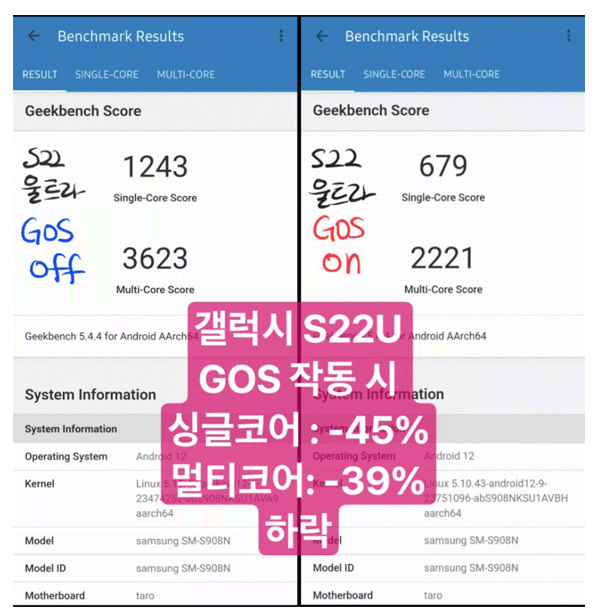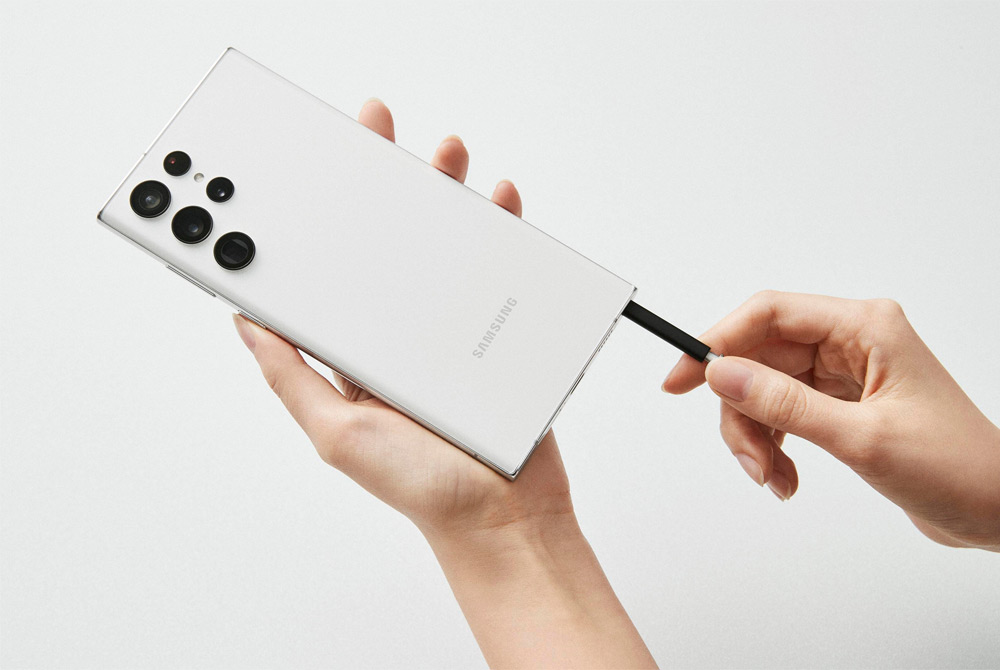With the advancements of technologies, people can create computer chips that are both smaller and more powerful. This allows devices to keep their size, but speed up in performance tremendously.
Smartphones have become part of many people's lives. And as they become increasingly powerful over the years, people are starting to enjoy the speedy experience for granted, meaning that many may not realize if their phones actually become slower.
Samsung is the maker of smartphones from South Korea, and the company knows this very well.
With its Galaxy S22 series, the company has embedded what's called the 'Game Optimizing Service' app, pre-installed as a system app.
As the name suggests, the app is thought to be able to "improve" games' performance. But in fact, according to a researcher who shared it on Twitter, the app is actually slowing down apps.
In other words, Samsung has apparently been throttling the performance of thousands of apps in the name of improving performance.

In a tweet, the researcher pointed out, with the help of a lengthy thread from frustrated Samsung Galaxy owners in Korea, Samsung does make its Galaxy S22 series faster and more powerful than the company's previous Galaxy series.
However, the Game Optimizing Service which promises to "optimize" the performance of apps, actually maintains a list of apps Samsung wants it to throttle.
As demonstrated in a YouTube video, when an app is listed in Game Optimizing Service list, its performance is limited. And when the package name is renamed to a benchmark app, the YouTuber managed to trick Samsung's software to run the app using the phone's maximum capacity.
Apps that are included on the Game Optimizing Service list, include popular apps such as Instagram, Netflix, TikTok, and even some Google apps. Samsung also included some of its own apps including Pay, Secure Folder, and others.
Altogether, apps that are listed on the Game Optimizing Service app appears to number around 10,000.
Sneakily, Samsung excludes popular benchmarking app, like 3DMark, GeekBench, and others.
Galaxy S22 phones use Exynos 2200 or Qualcomm SM8450 Snapdragon 8 Generation, which are extremely powerful chips when they were launched. By throttling the performance, Galaxy S22 series' CPU scores drop down to as much as 46%, down to the level of Galaxy S10 series.
Making it frustrating for owners is that, the Galaxy S22 series are phones that cost well above $1,000.
Worse, Game Optimizing Service cannot be disabled, let alone uninstalled.
Responding to the situation, in the Samsung Members app in South Korea, Samsung said that:
"To meet the recent needs of various customers, it is planned to update the Game Booster lab to provide an option to prioritize the performance, as soon as possible."
"Afterward, we will try our best for customers’ satisfaction and safety by listening to their opinions. Thank You."

It's also worth mentioning that out of the 10,000 apps listed in the Game Optimizing Service, 3,200 of them are games.
The rest are normal, everyday apps.
It's worth noting that users have found that enabling the 'High performance' mode on the Samsung phones can disable most of Game Optimizing Service's "optimizations."
Throttling of phones in the name of saving battery have been heard before. The most famous, was when Apple throttled the performance of old iPhones, and got fined.
It's not necessarily bad, but only if users have control over the feature, allowing them to choose between performance or longer battery life is reasonable.
Read: French Regulator Fined Apple €25 Million For Slowing Down Older IPhones
Following the news, Geekbench has delisted the last four generations of Galaxy flagships from its benchmarking platform.
According to Geekbench’s current policy, once a device is delisted, the device shall be removed permanently.
What this means, even when Samsung is issuing an update to let users control performance, all the aforementioned Galaxy phones will remain delisted from Geekbench.
After extensive internal testing we have determined the following Samsung Galaxy handsets use GOS:
- Samsung Galaxy S22 (all models)
- Samsung Galaxy S21 (all models)
- Samsung Galaxy S20 (all models)
- Samsung Galaxy S10 (all models)— Geekbench (@geekbench) March 4, 2022